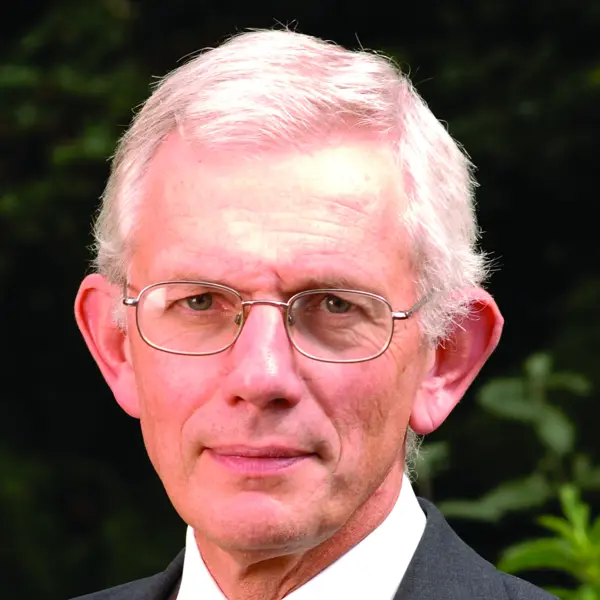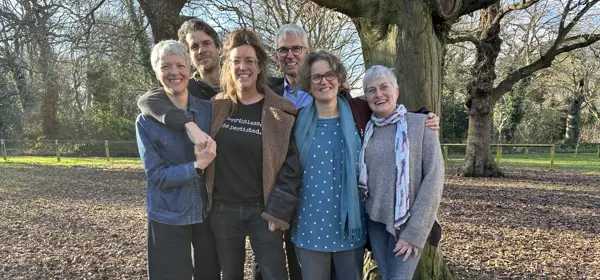No half measures
No half measures
Minimum unit pricing for alcohol has been associated with 150 lives saved a year in Scotland. Wales has it too, but politicians elsewhere continue to drag their feet or dispute the overwhelming evidence
Raising the price of alcohol could save hundreds of lives a year in the UK and reduce pressure on the NHS. Yet, five years since it was introduced in Scotland, the policy of MUP (minimum unit pricing) remains controversial.
PHS’s (Public Health Scotland’s) final report on MUP appears to prove decisively the positive effect of charging a minimum of 50p per unit of alcohol in a drink. It credits MUP with a 13.4 per cent reduction in deaths wholly caused by alcohol and a 4.1 per cent fall in hospital admissions directly related to alcohol in Scotland.
Early signs from Wales, where MUP was introduced in 2020, suggest it is having the desired effect there too.
Yet, Scottish Conservatives have alleged the PHS research was ‘misleading’ in its causal links. And England and Northern Ireland continue to drag their heels on MUP, amid media mutterings about a nanny state.
Meanwhile, the statistics about the huge burden alcohol places on the NHS and society are increasingly compelling, and campaigners for reform, including the BMA, are ever more determined.
The evidence on price being the number one driver of harm is so strong, it’s overwhelming
Sir Ian
‘There’s hardly a family that hasn’t been touched by some harmful aspects of alcohol,’ says Professor Sir Ian Gilmore, founder and chair of the AHA (Alcohol Health Alliance UK).
‘The evidence on price being the number one driver of harm is so strong, it’s overwhelming.’
Sir Ian, a hepatology specialist, was among senior doctors and academics making a sternly worded rebuttal last month in The Lancet of Scottish Conservatives’ decision to refer the PHS report to the UK Statistics Authority.
He insists the research, published in June, used a robust methodology and credible sources. ‘Comparing trends in Scotland and England, including during the COVID-19 pandemic when alcohol deaths were increasing in many countries, is an entirely appropriate approach,’ says the joint statement in The Lancet.
Targeted help
Sir Ian’s disappointment with the political backlash to the PHS report has not quashed his enthusiasm about its findings.
They include the fact that MUP led to a 3 per cent fall in sales of cheap drink with the strongest alcohol content at off-sales outlets. This is the type favoured by heavier drinkers and those from poorer socio-economic backgrounds. The lives saved by MUP were highest among people in the most deprived areas.
‘It shows that the benefit of MUP is targeted so that those who need help the most are the ones being helped,’ says Sir Ian.
Alcohol harm is a strong marker of health inequalities. In 2021-22 the rate of alcohol-related admissions was six times higher in the most deprived areas of Scotland compared with the least deprived areas. The rate of alcohol-specific deaths is 4.3 times higher in the most deprived areas than in the least deprived.
‘In England you can still get 7.5 per cent cheap white cider which contains 18.8 units in 2.5 litre bottles, but that’s disappeared from stores in Scotland,’ says Sir Ian.
Wales introduced MUP in early March 2020, just before the first national lockdown. Researchers from Newcastle University credited the MUP in Wales with an 8.6 per cent decrease in household purchasing compared with England, also mainly in the heaviest-drinking households.
Public health consultant Tamasin Knight, a member of the BMA Scottish consultants committee, also welcomed the PHS findings.
‘We knew MUP would have that effect but it’s great to have hard evidence that it has saved lives and averted hospital admissions,’ says Dr Knight.
‘This 13.4 per cent reduction in deaths is not just a number: it represents around 150 real people whose lives have been saved each year.’
A ‘sunset clause’ in the legislation that ushered in MUP means the Scottish Parliament must vote before next May on whether to retain MUP.
Dr Knight is ‘reasonably confident’ that MUP will be upheld and is keen to see MUP ‘uprated’ to keep pace with inflation.
Sir Ian points out the 50p price point dates back to a 2009 recommendation by the then chief medical officer Liam Donaldson.
The case for action
Legislation is essential for tackling alcohol harm, insists Dr Knight. ‘For the most effective public health changes at population level, you need policy change and legislation: that is going to have a much bigger impact than any individual-level work you could do with a patient,’ she says.
‘Look at other legislation to improve health: things like seatbelts in cars or not being allowed to smoke in pubs and restaurants. These days people wouldn’t really question those. MUP is there to protect our health.’
The case for action on alcohol is hard to refute.
For the most effective public health changes at population level, you need policy change and legislation
Dr Knight
In England, 37 per cent of ambulance time is estimated to be spent on alcohol-related incidents: these also account for 25 per cent of emergency department work. Estimates suggest alcohol fuels more than one in 20 hospital admissions in England and costs England at least £3.5bn a year.
By contrast, alcohol-related hospital admissions slowed to their lowest rate for 25 years in Scotland post-MUP in 2021-22.
The Department of Health in Northern Ireland says it is considering responses to its consultation on MUP last year and preparing ‘policy options’.
BMA Northern Ireland council chair Tom Black is frustrated that the political stalemate in Northern Ireland means progress made with the MUP consultation has stalled.
But he says: ‘A lack of evidence that MUP will address the issue is frequently cited as a reason not to bring forward relevant legislation, so it is good to see evidence from Scotland that there is a positive health impact from MUP. When the Assembly resumes, we will continue to press for MUP to be introduced in Northern Ireland.’
The Westminster Government has an intrinsic fear of being criticised for being a nanny state
Sir Ian
Strong lobbying from the drinks industry and weak political resolve make it unlikely England will introduce MUP any time soon, Sir Ian believes.
It’s a long game: Sir Ian, a former president of the RCP (Royal College of Physicians), chaired the RCP working party that produced the influential report, Alcohol: can the NHS afford it? in 2001.
‘We’ve not had an alcohol strategy from Westminster Government since 2012,’ he says. ‘They have an intrinsic fear of being criticised for being a nanny state and of losing votes, even though the surveys don’t support that.’ An AHA survey with YouGov in July found 55 per cent of those who expressed an opinion felt the Government needed to take tougher action on alcohol.
Cracks in the system
Sir Ian and Dr Knight are keen to point out MUP is no silver bullet. Tackling alcohol-related harms requires a multi-pronged approach, focusing on prevention and treatment.
The AHA has long campaigned for duty reform and welcomed the tax system which came into force last month, whereby products are taxed according to their strength. Alcohol duty has been cut or frozen in most years since 2013 in the UK.
Likewise, alcohol-treatment services need serious reform and investment. It’s estimated only one in five dependent drinkers in England are in treatment.
Sir Ian has been encouraged by the success of alcohol-care teams, including the one at Royal Liverpool University Hospital where he works. Their job is to provide specialist treatment and interventions for patients with alcohol-related illness during their admission.
But Sir Ian is keen to see better follow-up too. He points out that alcohol-related brain injury, a form of dementia, is reversible in a third of cases.
‘The biggest challenge is when people leave hospital,’ he says. ‘There are so many cracks in the system and in the pathways between hospital and the community. So many alcohol treatment services are being farmed out to the lowest bidder that the system has become very fragmented.’
Limiting harm
His hospital is setting up an Alcohol Assertive Outreach team, following a model pioneered by South London and Maudsley NHS Foundation Trust and King’s College London for patients with mental illness. The team provides regular proactive support for patients with alcohol-related brain injury at home or in the community.
In the meantime, doctors still have an important role to play in limiting alcohol harms.
Dr Knight encourages doctors to use their voices to push for alcohol reform, including by writing to their political representatives and speaking to the media.
Sir Ian urges doctors to encourage frank conversations about alcohol consumption with their patients. ‘I think a lot of people would cut back if they knew they were doing themselves harm.’
He also underlines that alcohol dependence has a strong genetic element, ‘probably about 50 per cent genetic and 50 per cent environment’.
‘It’s important to reduce stigma around this issue. Nobody volunteers to be an alcoholic.’
Sir Ian has lobbied on this issue for decades now – and remains committed.
‘This work has its moments of frustration, such as in 2012 when the Government committed to introducing MUP and then did a U-turn about six months later. But we press on. As David Cameron, talking specifically about MUP, said: “Sometimes it’s more important to do the right thing than the popular thing.”
The cost of alcohol misuse
- There are an estimated 26 alcohol-specific deaths and 70 alcohol-related deaths each day in the UK.
- Alcohol costs the UK healthcare system an estimated £8.3bn a year.
- The UK’s alcohol-specific death rate for men is twice that for women.
- 42% of violent crime in England and Wales is alcohol-related.
- Until September 2024, resident doctors were referred to as ‘junior doctors’ by the BMA. Articles written prior to this date reflect the terminology then in use





